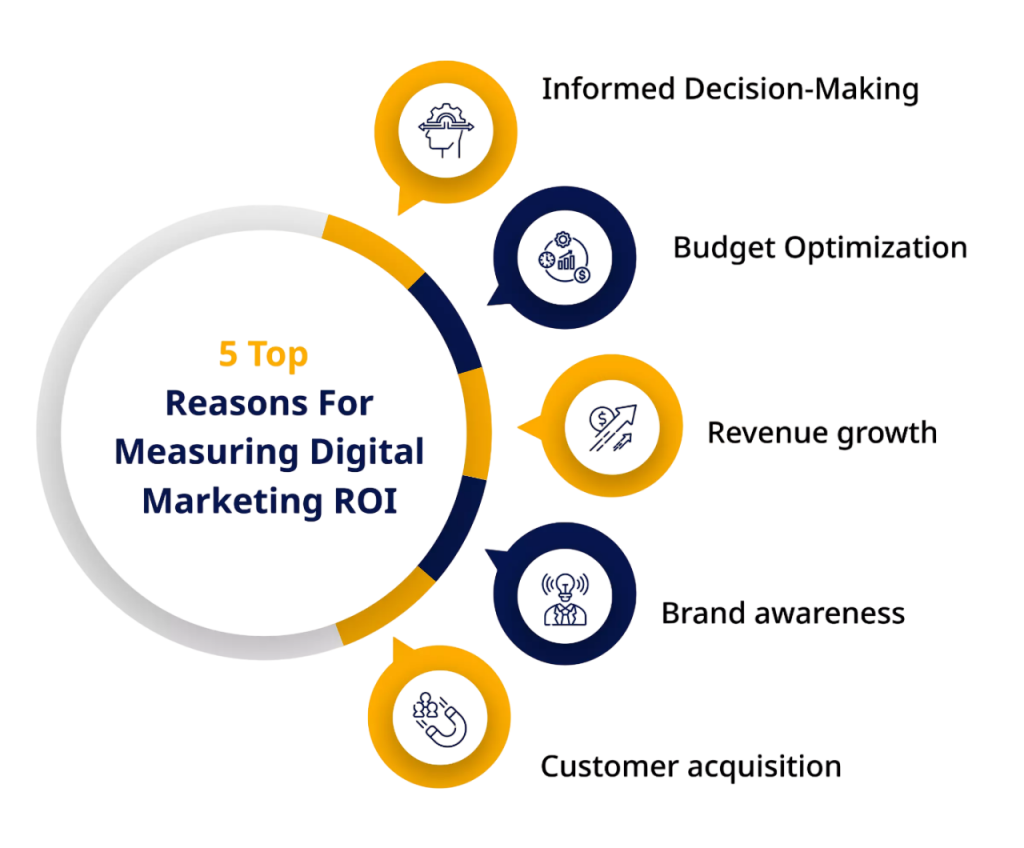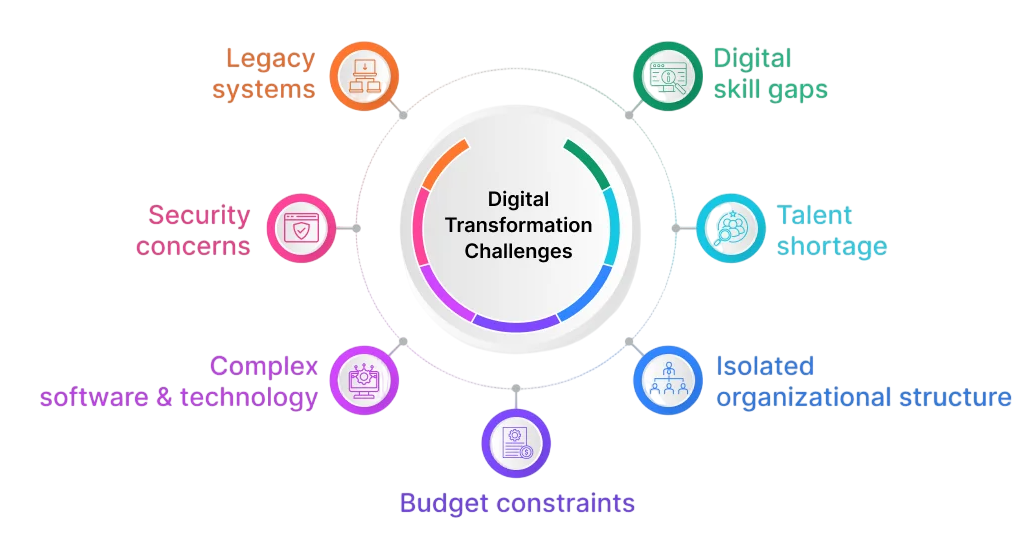
- Introduction
- What is Digital Marketing?
- Importance of Digital Marketing
- Core Components of Digital Marketing
- Setting Digital Marketing Goals
- Digital Marketing Strategy Essentials
- Measuring Digital Marketing Success
- Common Challenges in Digital Marketing
- Future Trends in Digital Marketing
- Conclusion
Introduction
Digital marketing has transformed how businesses connect with their customers and improve their brand visibility. Unlike traditional marketing methods, which often rely on physical advertising, digital marketing uses online platforms to reach audiences more effectively and on a wider scale. This guide is designed for beginners and aims to introduce you to the main principles of digital marketing an entry-level foundation provided in Digital Marketing Training, where learners explore essential concepts like SEO, content strategy, paid media, and analytics, gaining practical insights into how digital channels work together to drive visibility, engagement, and growth. You will learn about its key components, such as social media, email campaigns, search engine optimization, and more. By the end, you will also find out how to create a successful digital marketing strategy that can really boost your business and increase your presence online. Whether you own a small business or want to explore marketing, this guide will give you the tools and insights to navigate the online space and help your brand stand out. Let’s begin this exciting journey together!
Ready to Get Certified in Digital Marketing? Explore the Program Now Digital Marketing Online Training Offered By ACTE Right Now!
What is Digital Marketing?
Digital marketing includes many activities that use the internet and electronic devices. This method uses different channels, such as search engines, social media sites, email, websites, and mobile apps, to promote various products or services. The main goal of digital marketing is to attract potential customers, engage them with relevant content, convert them into buyers, and keep their loyalty a full-cycle strategy powered by Content Distribution, where marketers learn how to deliver the right message through the right channels at the right time, using blogs, videos, email, and social media to guide audiences through the buyer By using these digital touchpoints, businesses can build strong relationships with their audience. This helps them stay connected and engaged over time. This strategy is crucial for competing in today’s fast-paced, digital-focused world, where consumers increasingly depend on online platforms for their purchasing choices. The success of digital marketing comes from its ability to reach a wide audience and provide personalized experiences based on individual preferences.
Importance of Digital Marketing
In today’s technology-driven world, digital marketing is essential for businesses of all sizes. It offers several advantages over traditional marketing:
- Cost-Effectiveness: Digital campaigns can be more affordable and measurable.
- Targeted Reach: Marketers can reach specific demographics, interests, and behaviors.
- Real-Time Performance Tracking: You can measure campaigns instantly and optimize accordingly.
- Global Reach: Digital marketing removes geographical boundaries, enabling global audience access.
- Personalization: Marketing messages can be tailored to individual users for higher engagement.
- Search Engine Optimization (SEO): SEO is the process of optimizing your website to rank higher on search engines like Google. It involves keyword research, on-page SEO (meta tags, content optimization), technical SEO (site speed, mobile-friendliness), and off-page SEO (backlinks). A strong SEO foundation improves organic visibility and drives free, targeted traffic.
- Content Marketing: Content marketing focuses on creating and distributing valuable, relevant content to attract and engage a clearly defined audience. Examples include blog posts, videos, infographics, and ebooks. Good content educates potential customers, builds trust, and supports other marketing channels like SEO and social media.
- Social Media Marketing (SMM): SMM uses platforms like Facebook, Instagram, LinkedIn, and Twitter to promote brands and engage users. Social media marketing involves organic posts, paid ads, influencer collaborations, and community management. It helps increase brand awareness, foster customer loyalty, and generate leads.
- Pay-Per-Click Advertising (PPC): PPC is a paid advertising model where marketers pay a fee each time their ad is clicked. Common platforms include Google Ads and social media advertising. PPC offers instant traffic, detailed targeting options, and clear ROI tracking. Ads can appear in search results, social feeds, or display networks.
- Email Marketing: Email marketing involves sending targeted messages to a subscriber list. It’s a direct channel for nurturing leads, promoting products, and maintaining customer relationships. Successful email campaigns use personalization, segmentation, compelling subject lines, and strong calls to action.
- Affiliate Marketing: Affiliate marketing allows businesses to partner with individuals or companies (affiliates) who promote their products in exchange for a commission on sales or leads. It leverages a wider network for growth and is performance-based, minimizing upfront marketing costs.
- Online Public Relations (PR): Online PR focuses on building a positive brand reputation through digital media. This includes managing reviews, press releases, influencer outreach, and responding to customer feedback on social platforms. Good PR improves brand trust and visibility.
- Website traffic and sources
- Conversion rate
- Cost per acquisition (CPA)
- Click-through rate (CTR)
- Social media engagement
- Email open and click rates
- Intense competition for audience attention
- Keeping up with rapid technological changes
- Data privacy regulations and compliance
- Creating consistent, high-quality content
- Accurately attributing conversions to marketing efforts
To Explore Digital Marketing in Depth, Check Out Our Comprehensive Digital Marketing Online Training To Gain Insights From Our Experts!
Core Components of Digital Marketing
Digital marketing consists of several interconnected disciplines, each playing a unique role.
Setting Digital Marketing Goals
When creating a digital marketing campaign, setting clear and measurable objectives is essential for success. Marketers usually focus on goals like increasing website traffic, generating qualified leads, building strong brand awareness, improving customer engagement, and boosting long-term customer retention. By using SMART (Specific, Measurable, Achievable, Relevant, Time-bound) goals, organizations can track campaign performance and improve their digital marketing strategies over time a strategic framework emphasized in Digital Marketing Training, where learners discover how structured goal-setting enhances focus, aligns teams, and drives measurable outcomes across SEO, paid media, and content marketing initiatives. This goal-focused method allows businesses to create targeted, data-driven initiatives that produce meaningful results and offer useful insights for future marketing efforts.
Looking to Digital Marketing Training? Discover the Digital Marketing Expert Masters Program Training Course Available at ACTE Now!
Digital Marketing Strategy Essentials
A successful digital marketing strategy needs a solid approach that starts with detailed audience research. This research helps understand customer needs, behaviors, and challenges. By doing a careful competitive analysis, businesses can find unique opportunities and choose digital channels that fit their target audience’s habits and overall goals. Creating a strong content plan with a clear calendar makes sure the messaging remains consistent and connects with potential customers a foundational tactic showcased in Big Brands Transforming Experience, where leading companies use structured scheduling, cross-channel alignment, and audience-first messaging to build trust, boost recall, and deliver seamless brand experiences across every digital touchpoint. An important part of this strategy is budgeting, which allocates resources wisely across paid advertising, essential tools, and content creation. It’s also crucial to set up a strong measurement framework with clear key performance indicators (KPIs) and use analytics tools. This allows for ongoing monitoring and data-driven adjustments to marketing efforts.
Measuring Digital Marketing Success
Create a Digital Marketing Report is more than compiling metrics it’s about transforming raw data into actionable insights. This process involves setting clear goals, aligning KPIs, visualizing performance through charts and dashboards, and crafting a narrative that communicates impact across SEO, PPC, email, and social media channels.

Preparing for Digital Marketing Job Interviews? Have a Look at Our Blog on Digital Marketing Interview Questions and Answers To Ace Your Interview!
Common Challenges in Digital Marketing
Digital Marketing is rewarding but comes with challenges:

Overcoming these requires continuous learning, experimentation, and adaptation.
Future Trends in Digital Marketing
In today’s fast-changing digital world, staying competitive requires a smart approach to new marketing trends. Businesses are increasingly using Artificial Intelligence to offer personalized experiences and improve automation. They are also focusing on voice search and adopting technologies like augmented and virtual reality emerging trends explored in Digital Marketing Certification Process, where learners gain insight into conversational advertising, immersive brand experiences, and platform innovations that reshape how marketers engage audiences across smart devices, AR overlays, and VR simulations. The growth of video and live streaming content has changed how audiences engage, allowing for more dynamic and interactive communication. At the same time, companies are focusing on data privacy and ethical marketing practices, understanding the importance of building trust with consumers. By using an omnichannel marketing strategy, organizations can create seamless and connected customer journeys that respond to changing consumer preferences and technology. These new methods not only improve customer experience but also help brands stay at the leading edge of digital change, ensuring they remain relevant and competitive in a complex marketing landscape.
Conclusion
Digital marketing is essential for businesses to succeed today, especially in a world that relies on digital platforms. A solid understanding of its basic components, like search engine optimization (SEO), content marketing, pay-per-click (PPC) advertising, and email marketing, helps marketers create effective strategies that resonate with their target audience core disciplines covered in Digital Marketing Training, where learners gain hands-on experience with campaign planning, audience targeting, and performance analytics to build scalable, results-driven marketing systems across digital channels. When businesses set clear and achievable goals, choose the best channels for communication, and regularly review their results, they can significantly improve their online presence and stay competitive in their industry. The digital environment also changes quickly, so it’s important for companies to embrace new ideas and stay informed about the latest trends. By doing this, they can adjust to changes more easily, ensuring they not only meet their marketing goals but also achieve long-term success. In this fast-paced, always-changing landscape, staying committed to learning and innovation is crucial for maintaining a strong digital presence and thriving in today’s marketplace.




